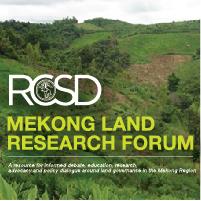Resource information
We estimate whether a land reform program led to higher incomes for ethnic minority households. In 2002, in the Central Highlands of Vietnam, Program 132 directed the transfer of farm land to ethnic minority households that had less than one hectare of land. Using the 2002 Vietnam Household Living Standards Survey as a baseline, in 2008 we resurveyed over one-thousand households to provide a retrospective evaluation of the impact of their participation in Program 132. Contrary to official reports, our findings show that there was considerable deviation from the planned program parameters: many eligible households did not receive land, while ineligible households often did. We estimate that beneficiaries of the program in the province of Kon Tum experienced increases of household income largely in line with what one would expect from a small plot of poor farm land. Outside Kon Tum, where participation rates were substantially lower, the story is more mixed, and household incomes did not improve with program participation. Overall, our results underscore the limitations of simple transfers of land as a mechanism for improving the living standards of ethnic minorities. Our results also show the significant gap that can exist between program design and decentralized implementation. We discuss the potential implications for program evaluation.



